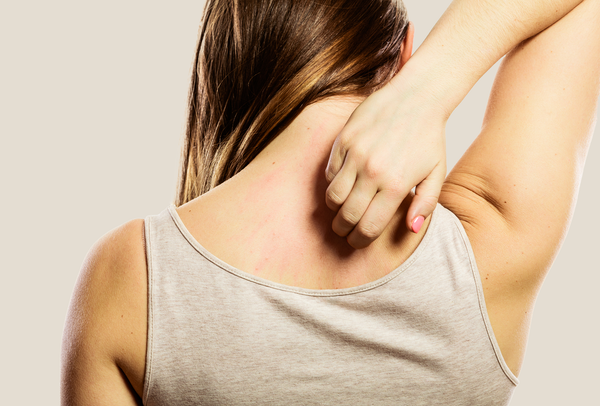Everyone’s skin is different, and has the potential to react to an array of factors such as harsh chemicals, skincare ingredients, and the fragrances that we come in contact with every day. Some people’s skin is more tolerant, others’ is more sensitive, and then there are those who are truly allergic to fragrance.
Fragrance allergies can present as skin itching and rashes, a runny nose, watery eyes, and fragrance is known to contribute to migraine headaches in some people. This wide array of symptoms can make it difficult to pinpoint fragrance as the allergy source. We came across this recent study that addresses the challenges that face both patients with fragrance allergies and the dermatologists they turn to for help.
For patients, avoiding fragrance can be extremely difficult simply because it is in many of the products we use every day. In some cases, information about fragrance is incomplete on product labels. When you see “fragrance” in the ingredient list, it can be a mix of dozens of chemical and natural compounds that are not required to be divulged because this “fragrance” is considered a trade secret.
Dermatologists often use patch testing to identify the specific allergen (or allergens) that cause a skin reaction. It is standard to test “fragrance mix 1” and “fragrance mix 2” when testing for skin allergies. Fragrance mix 2 includes linalool and limonene (often found in natural fragrance), which are strong sensitizers and considered some of the most common allergens.[1]
However, it is difficult to keep patch-testing current as new fragrance ingredients continue to enter the market. This scholarly article was also noteworthy because it shared a comprehensive list of potential fragrance allergens that dermatologists can test for, along with other allergens that can help indicate fragrance sensitivity such as such as essential oils, colophonium (derived from pine and spruce trees), Compositae mix (a particular family of flowering plants), and sesquiterpene lactone mix (which is another group of plant-derived compounds).
Beauty and personal-care products are a common source of fragrance-related allergies, and often the most scrutinized by those who have them. However, it’s also important to consider household products, hygiene products, products that are labeled as “natural,” topical medications, and exposure to other chemicals (such as in the workplace).
With SEEN, those with fragrance allergies don’t have to worry about their haircare making matters worse. From our shampoo and conditioners to styling products and more, all our formulas are available fragrance free. SEEN’s fragrance-free products are also clinically proven to be safe for acne-prone and sensitive skin, as well as safe for eczema-prone skin.
Yes, you can get stronger, smoother, healthier-looking hair without the fragrance or many other common irritants and allergens that can have a negative impact on the skin. With SEEN, you get dermatologist-designed care for your healthiest skin and hair!
[1] https://practicaldermatology.com/topics/feature/contact-dermatitis-and-hair-care/29190/



